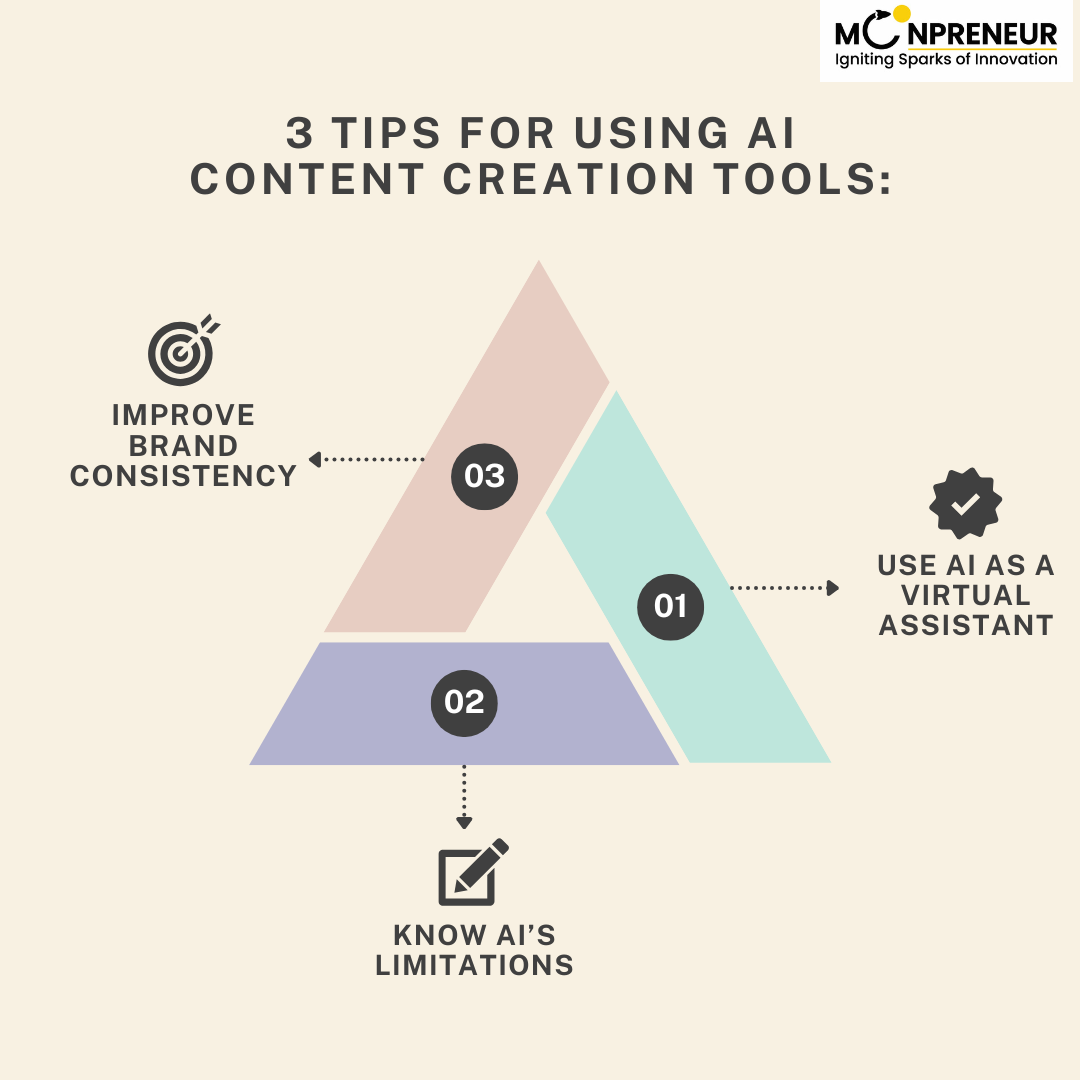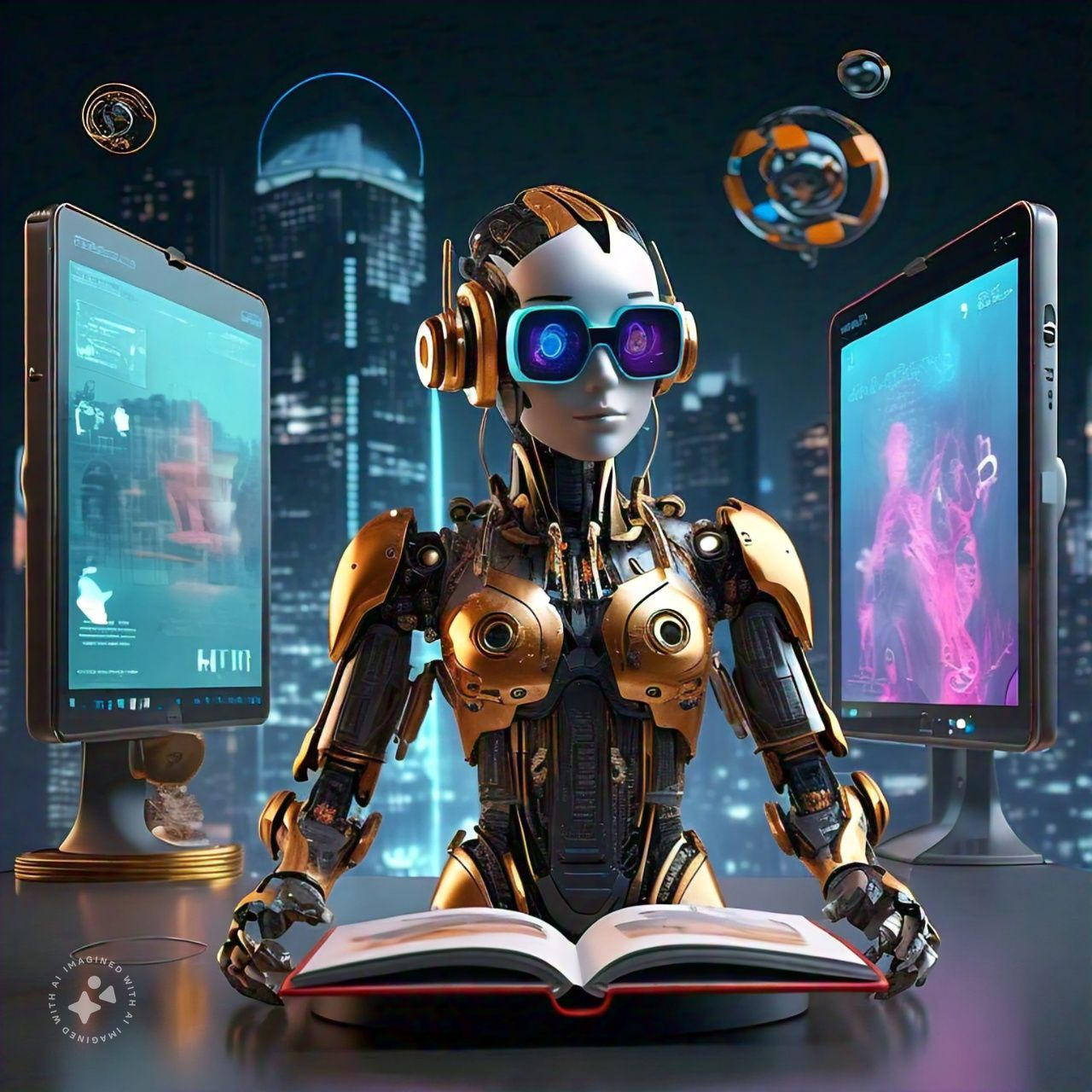In recent years, artificial intelligence (AI) has moved from science fiction into reality, impacting numerous industries. One of the most intriguing areas AI has entered is content creation, where machines are now shaping storytelling in ways that were once thought to be uniquely human. From generating articles and short stories to creating immersive video game plots, AI is becoming a key player in how stories are told.
The Evolution of AI in Content Creation

At first, AI was primarily used for simple tasks like spell-checking or grammar suggestions. However, with advances in machine learning and natural language processing, AI systems are now capable of crafting coherent narratives. Tools like GPT (Generative Pretrained Transformer) are able to generate entire articles, creative stories, and even poetry by analyzing vast amounts of data and learning the patterns of human language.
The rise of AI content creators is revolutionizing the way content is produced. Whether it’s automating blog posts, writing news summaries, or creating dialogue for video games, AI is freeing up human creators to focus on more complex and strategic aspects of storytelling.
Pros and cons of AI Blog Writers
| Pros of AI Blog Writers | Cons of AI Blog Writers |
|---|---|
| Speed: AI writes posts in minutes, saving time. | Lack of Creativity: AI struggles with humor and emotional connections. |
| Availability: AI works 24/7 without breaks. | Context Errors: Sometimes misinterprets context, leading to awkward sentences. |
| Consistency: Delivers reliable content, no matter the time or workload. | Ethical Concerns: AI may blur the line between inspiration and imitation. |
| Scalability: Easily increases content production without extra hires. | Costs: Quality AI tools can be expensive and need regular updates. |
| Data Processing: AI analyzes large data sets to create relevant content. |
How AI Is Shaping Storytelling
Speed and Efficiency
AI’s speed and efficiency in content generation are truly impressive. It can analyze massive datasets in seconds and create stories tailored to specific audiences or trends, allowing companies to push out content more quickly than ever before.
Personalized Narratives
AI has the unique ability to personalize content at scale. By analyzing user data, such as preferences and browsing habits, AI can create customized stories that appeal to individual tastes, whether it’s personalized news feeds or unique storylines in video games.

Innovative Story Structures
AI systems can devise narrative structures that humans may not traditionally consider, opening up a world of possibilities. They can blend genres, experiment with non-linear storytelling, or generate entirely new forms of narrative. These innovations challenge human creators to think outside the box and explore different possibilities, sparking intrigue in the potential of AI.
Collaboration with Humans
Rather than replacing human writers, AI is often seen as a collaborator. Writers can use AI tools to help generate ideas, streamline research, or even co-write pieces. For instance, AI can suggest plot twists or develop complex character backstories, leaving the writer to refine the narrative’s emotional depth and nuance.
The consolidated list of the best AI content generators to use in 2025
- ClickUp
- Copysmith
- Writesonic
- Kafkai
- Jasper
- Copy.ai
- Rytr
- ContentBot
- Wordtune
- ParagraphAI
- QuillBot
- Speedwrite
- Frase
- Anyword
- WordAi
- OwlyWriter
- ChatGPT
- Claude
- Midjourney
- Beautiful.ai
- Descript
- Invideo and Canva.
3 tips for using AI content creation tools:

1. Use AI as a Virtual Assistant
AI is meant to handle tedious tasks like note cleanup or content repurposing, freeing you to focus on creative work while keeping the ideas original.
Recommended Reading: How Will Artificial Intelligence Impact Our Lives?
2. Know AI’s Limitations
AI can assist with basic tasks but needs up-to-date insights or human creativity. Use it to get started, but always add the human touch for well-rounded content.
3. Improve Brand Consistency
Feed your brand’s style guide and tone into AI tools to ensure consistent branding across all content. This is especially useful for new hires or freelancers.
AI in Different Storytelling Mediums
1. Film and TV: AI is being used to generate scripts or assist in analyzing audience reactions to different story arcs. It can also recommend edits or predict a film’s success based on its storyline.
2. Video Games: Storytelling in video games is particularly suited for AI’s capabilities. AI can create dynamic narratives that change based on player decisions, offering unique gaming experiences.
3. Books and Articles: AI can generate full-length novels or articles with minimal human intervention. Some authors have even published books co-written with AI, showcasing the potential for collaboration.
Some free AI tools for content creation are
- Caption Generator: Create social media-optimized captions in multiple languages.
- Hashtag Generator: Find the best hashtags for Instagram, Facebook, TikTok, and more.
- YouTube Video Description Generator: Generate optimized YouTube descriptions with relevant keywords.
- YouTube Video Title Generator: Come up with catchy, attention-grabbing video titles.
- Username Generator: Get AI-generated username suggestions based on your profile.
- Social Media Bio Generator: Create platform-specific bios for your social media profiles.
- Blog Ideas Generator: Generate a month’s worth of blog content ideas.
- Content Ideas Generator: Plan fresh social media content with AI-generated ideas.
Challenges and Ethical Considerations
While the rise of AI content creators presents exciting possibilities, it also raises ethical concerns. One key issue is authorship. If an AI writes a novel or generates a story, who owns the rights? There’s also the question of originality. Since AI is trained on existing data, can it truly create something “new,” or is it just remixing past content?
Moreover, AI-generated content may need more emotional depth and a nuanced understanding of the human experience that real-life storytellers bring to their work. While AI can mimic human language patterns, its ability to convey genuine emotion remains limited. It’s important to acknowledge the limitations of AI in storytelling, as it can help us understand where human creativity and empathy are irreplaceable.
The Future of Storytelling with AI
As AI technology advances, machines will likely continue to play an even more significant role in storytelling. From fully automated content platforms to more sophisticated AI-human collaborations, the future of storytelling is being redefined. However, while AI can enhance efficiency and creativity, it’s the human touch—empathy, emotion, and deep understanding—that will continue to be at the heart of powerful stories, reassuring the audience about the enduring role of human creativity in storytelling.

Conclusion
The rise of AI content creators marks a transformative period in storytelling. From personalized narratives to the development of new genres and formats, AI is reshaping how we create and consume stories. While challenges and ethical concerns remain, the collaboration between human creativity and AI-driven innovation promises an exciting future for storytelling.
Moonpreneur is on a mission to disrupt traditional education and future-proof the next generation with holistic learning solutions. Its Innovator Program is building tomorrow’s workforce by training students in AI/ML, Robotics, Coding, IoT, and Apps, enabling entrepreneurship through experiential learning.


























I found some AI tools, like Synthesia, even create digital avatars for real-time animations. This could add a whole new dimension to visual storytelling in marketing and education
Interesting read, but it misses AI’s struggles with complex topics. I read that in fields like journalism, AI often lacks the nuance and ethics needed for real-time events, where human oversight is key for depth and accuracy.